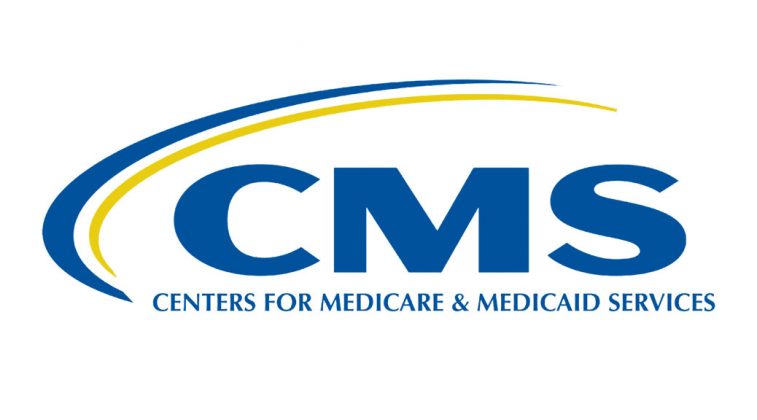CMS announces new details of plan to cover new Alzheimer’s drugs. The Centers for Medicare & Medicaid Services (CMS) is releasing new details about how people can get drugs that may slow the progression of Alzheimer’s disease covered by Medicare. If the Food and Drug Administration (FDA) grants traditional approval, then Medicare will cover the drug in appropriate settings that also support the collection of real-world information to study the usefulness of these drugs for people with Medicare.
Specifically, Medicare will cover drugs with traditional FDA approval when a physician and clinical team participates in the collection of evidence about how these drugs work in the real world, also known as a registry. Clinicians will be able to submit this information through a nationwide, CMS-facilitated portal. The portal will be available when any product gains traditional approval and will collect information via an easy-to-use format. This method, and any others that may follow, will adhere to robust privacy protections in accordance with applicable federal laws and regulations, including HIPAA. CMS and researchers will have access to the information to conduct studies, furthering knowledge of how these drugs can potentially help people.
The approach is consistent with CMS’ National Coverage Determination (NCD) issued on April 7, 2022. To get Medicare coverage people will need to 1) be enrolled in Medicare, 2) be diagnosed with mild cognitive impairment or mild Alzheimer’s disease dementia, and 3) have a physician participating in a registry with an appropriate clinical team and follow-up care.
CMS is working with multiple organizations preparing to open their own registries. Once more registries are available, they will also be listed here, and clinicians will be able to choose which registry to participate in.
General information about the CMS-facilitated portal. Consistent with the NCD, Medicare will cover and pay for drugs in the class of monoclonal antibodies directed against amyloid for the treatment of Alzheimer’s disease with traditional FDA approval. To obtain coverage, the provider participates in a data submission effort, commonly referred to as a registry, to further evaluate whether the drug is reasonable and necessary in the Medicare population.
Registries are common tools in clinical settings that have successfully gathered information on patient outcomes for decades. In facilitating the development of this registry, CMS is carefully balancing the need to collect information while keeping the registry as easy to use as possible. Clinicians will submit information to this registry when furnishing this drug to people with Medicare. This “Monoclonal Antibodies Directed Against Amyloid for the Treatment of Alzheimer’s Disease Registry” will be available nationwide on CMS’s website if the FDA gives any of these drugs traditional approval.
Why is CMS requiring the use of a registry for coverage? As part of its coverage framework for this class of drugs, CMS is collecting information that will help to evaluate the appropriateness of the treatment for the Medicare population. The data collected will also help CMS to answer the questions outlined in the NCD:
- Does the drug meaningfully improve health outcomes (i.e., slow the decline of cognition and function) for patients in broad community practice?
- Do benefits and harms, such as brain hemorrhage and edema, associated with the use of the drug, depend on the characteristics of patients, treating clinicians, and setting?
- How do the benefits and harms change over time?
How much will providers have to pay to use the registry?
It will be free to use. There is no fee associated with the use of the registry.
How long will it take for a clinician to submit the information?
The data submission portal is an easy-to-use format. Whenever possible, drop-down menus will be available. Clinicians furnishing this drug will have already gathered this information as part of routine clinical assessment and follow-up care for patients with mild cognitive impairment or mild Alzheimer’s disease dementia who are being evaluated for or treated with these medications. The required elements may already be available to the clinician from the patient’s medical record. More details are forthcoming about the estimated length of time to enter data into the portal.
What information is required to be submitted to the registry?
The registry will capture information relevant to the questions in the NCD, including the following elements:
- Clinician/Submitter demographic information
- Clinician’s National Provider Identifier (NPI)
- Address of the submitter (chosen from a drop-down menu based on the NPI)
- Patient’s demographic information
- Medicare Beneficiary ID (MBI)
- Patient’s clinical information
- Individuals’ clinical diagnosis (mild cognitive impairment or mild Alzheimer’s disease dementia).
- Whether the individual is taking any anticoagulation or antiplatelet drugs.
- Results of the individual’s amyloid positron emission tomography (PET) scan, cerebrospinal fluid (CSF) test, or other amyloid test.
- Specific anti-amyloid monoclonal antibody being administered.
- Whether there is evidence of adverse events such as brain swelling or hemorrhage referred to as ARIA-E or ARIAH-H.
- Results of tests of cognition and overall function that were used to diagnose and treat the individual with mild cognitive impairment or mild Alzheimer’s disease dementia.




